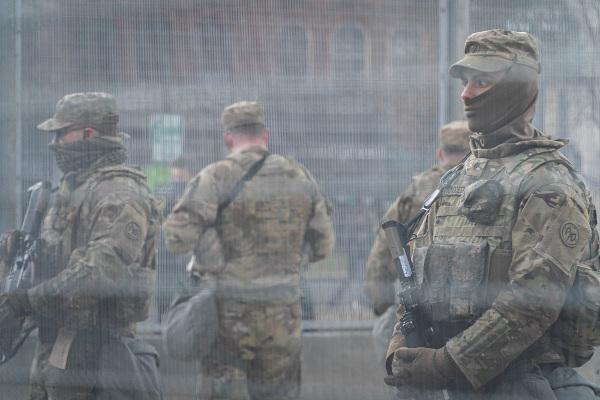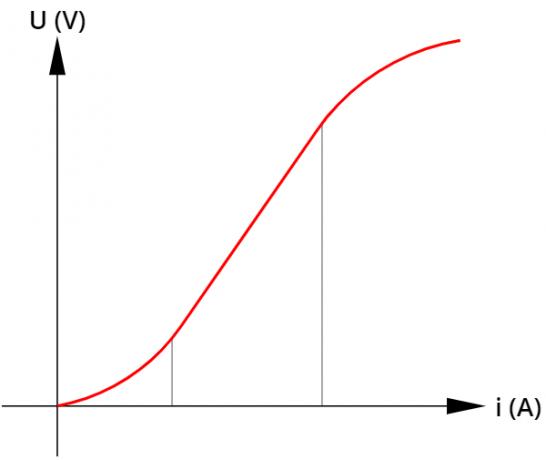martial law is a mechanism that establishes drastic measures in crisis scenarios, in particular contexts of war. This type of mechanism determines the temporary suspension of laws and civil rights and their replacement by law and military administration. In practice, the population is subject to a series of stricter rules until order is reestablished.
In Brazil, there is no legal provision for the imposition of martial law, but the Constitution of 1988 establishes three types of state of exception that can be adopted in contexts of serious social crisis. These states of exception are: state of defense, state of siege and federal intervention.
Read too: What is a coup d'état?
summary of martial law
Martial law is a mechanism that suspends civil laws and rights, replacing them with military law and public administration by the military.
It is implemented on a provisional basis in crisis scenarios, such as wars.
Martial law can restrict the rights of the population, such as the right to come and go, for example.
At the Brazil There is no legal provision for martial law.
The 1988 Constitution determines three possibilities for a state of exception: a state of defense, a state of siege and federal intervention.
After all, what is martial law?
. In practice, when martial law is adopted, all civil rights and individual freedoms of citizens are replaced by the application of military law. This means that the administration of the State passes under military control, with its laws in force over the population. adopted in emergency contextsllega deviceMartial law is a
Adherence to this law is not a recourse adopted in all countries, but in those where this type of resource is adopted, it is used in emergency situations, such as wars, contexts of social chaos due to protests or rebellions, military coups and even natural disasters, although most countries have a state of emergency to solve problems created by disasters natural.
Martial law is adopted in a circumstance where the government understands that only the imposition of military law can guarantee the maintenance of order. This feature is understood as a drastic measure and, as a rule, should be adopted only in exceptional situationss and for a specified period of time.
Each country can adopt martial law in any way it wants. However, some of Measures that may be adopted by means of martial law are:
restriction on the right to come and go;
restriction on the right to assemble;
limitation of the right to political demonstration;
suspension of the right of habeas corpus;
arrest of citizens without legal grounds;
condemnation of civilians through military laws.

Can there be martial law in Brazil?
There is no legal provision for the establishment of martial law in Brazil. However, there are other legal devices that can be adopted in emergency situations. In Brazilian legislation, these devices are known as states of exception, which are the state of siege, state of defense and federal intervention.
state of defense
It can be decreed by President of republic, after consulting the Council of the Republic and the National Defense Council. Its implementation aims to guarantee the preservation or restoration of social peace, threatened by institutional instability or by major calamities caused by natural disasters.
In this case the rights of assembly, correspondence secrecy and communication are restricted. The state of defense decree is also forwarded to Congress to be deliberated on an extraordinary basis, and may be terminated if Congress does not approve it. Finally, the state of defense can last for 30 days and can be extended for 30 days.
State of siege
O state of yourselftio it can be decreed after the president consults the Council of the Republic and the National Defense Council. The decree of this mechanism is only validated after being requested and approved by the National Congress. This state of exception may be announced in cases of serious commotion with national repercussions, when state measures of defense have no effect or when Brazil declares war or needs to respond to some armed aggression foreign.
In case of serious commotion with national repercussions, the state of siege is announced, with duration of 30 days, being able be extended for another 30 days until the situation that caused the need for the state of siege is resolved. For situations in which the state of defense measures failed and in the context of war, the state of defense site may be of indefinite duration, i.e. periods of 30 days which may be extended indefinitely.
federal intervention
This legal mechanism establishes a state of exception in which the autonomy characteristic of federalism is temporarily suspended. This is because Brazil is formed by the Union, It isstates, municipalities and Federal District, each having its administrative autonomy as established by the Constitution.
In a scenario of federal intervention, this autonomy is suspended, and the Union intervenes to solve a very serious problem. The 1988 Constitution establishes scenarios that may generate federal intervention, such as:
maintain national integrity;
repel foreign invasion or from one unit of the federation into another;
put an end to a situation that compromises public order.
Image credits:
[1] Andrew Fancher It is Shutterstock
By Daniel Neves Silva
History teacher
Source: Brazil School - https://brasilescola.uol.com.br/o-que-e/historia/o-que-e-lei-marcial.htm


